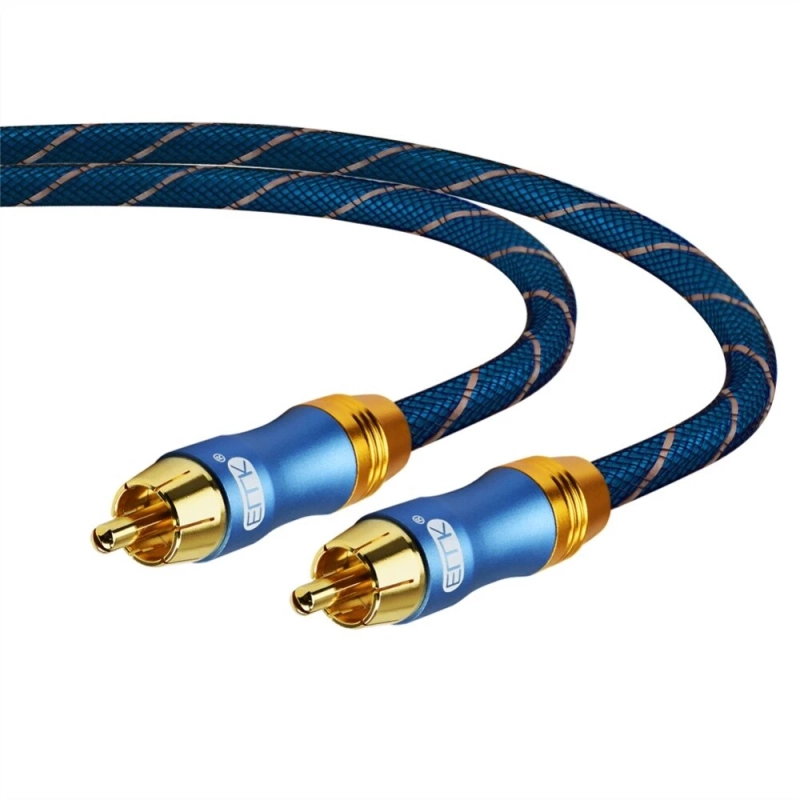When it comes to setting up your audio system, getting the right coaxial speaker cable is essential. Whether you’re a professional or just starting out, this article will provide you with the guidance you need to make an informed decision and choose the right coaxial speaker cable for your setup. So read on to find out how!
Introduction
If you're looking to improve the sound quality of your home theater or car audio system, one of the best ways to do it is by upgrading your speaker cable. But with so many different types and brands of coaxial cables on the market, it can be tough to know which one is right for your needs.
In this article, we'll break down everything you need to know about choosing the right coaxial speaker cable for your setup. We'll discuss the different types of coaxial cables, as well as their advantages and disadvantages. We'll also give you some tips on how to choose the right cable for your specific application.
So, if you're ready to take your sound system to the next level, read on!
What is a Coaxial Speaker Cable?
A coaxial speaker cable is a type of cable that is used to connect speakers to an audio system. The term “coaxial” refers to the fact that the two conductors are arranged in a cylindrical shape around a central core. This type of cable is typically used for home theater systems and other applications where high-quality sound is desired.
Coaxial speaker cables are composed of two main parts: the inner conductor and the outer jacket. The inner conductor is typically made of copper or silver and is responsible for carrying the signal from the amplifier to the speaker. The outer jacket protects the inner conductor from damage and interference.
There are two main types of coaxial speaker cables: single-conductor and bi-conductor. Single-conductor cables are less expensive but may not provide as good of a connection as bi-conductor cables. Bi-conductor cables have two inner conductors, which provides a more secure connection and better sound quality.
When choosing a coaxial speaker cable, it is important to consider the gauge (thickness) of the cable. A thicker gauge cable will provide better sound quality but will be more expensive. It is also important to consider the length of the cable needed for your setup. Shorter lengths are typically less expensive but may not reach all of your speakers if you have a large room.
If you are looking for a high-quality coaxial speaker cable, Monster Cable makes
Types of Coaxial Cables
There are three main types of coaxial cables: RG-59, RG-6, and RG-11. RG-59 is the most common type of coaxial cable. It is usually used for cable television and CCTV applications. RG-6 is a higher quality coaxial cable that is often used for satellite TV and broadband internet connections. RG-11 is the highest quality coaxial cable and is typically used for long runs or high-definition applications.
Advantages and Disadvantages of Each Type
Advantages and disadvantages of each type of speaker cable:
Coaxial cable: Advantages - Low capacitance, which results in less "smearing" of sound. Disadvantages - More expensive than unshielded wire.Unshielded wire: Advantages - Inexpensive. Disadvantages - Susceptible to interference from other electronic devices.Bi-wire Speaker Cable: Advantages - Reduces interference between high and low frequency signals. Disadvantages - Can be more expensive than standard speaker cable.How to Choose the Right Coaxial Cable for Your Setup
When it comes to speaker cable, there are many options available on the market. So, how do you know which one is right for your setup? Here are a few things to consider when choosing the right coaxial cable for your needs:
- The gauge of the wire: The thicker the wire, the better it will be at carrying the signal. However, thicker wires are also more expensive and can be more difficult to work with.
- The length of the run: The longer the cable run, the more likely it is that signal loss will occur. For runs longer than 50 feet, it is best to use a thicker gauge wire.
- The type of connection: There are two main types of speaker connections - banana plugs and bare wire. Banana plugs are easier to work with but they are also more expensive. Bare wire connections are less expensive but they can be more difficult to work with.
- Whether or not you need shielded cable: Shielded cable is necessary if you are running your cables near power lines or other sources of interference. Unshielded cable is less expensive but it is more susceptible to interference.
Once you have considered all of these factors, you should be able to narrow down your choices and select the right coaxial cable for your needs.
Factors to Consider When Choosing a Cable
When it comes to speaker cables, there are a few things you need to take into account in order to make sure you're choosing the right one for your setup. Here are a few factors to consider when choosing a cable:
- The gauge of the cable. The thicker the cable, the better it will be at carrying the signal. However, thicker cables can be more difficult to work with and may not fit in all spaces.
- The length of the cable. The longer the cable, the more likely it is to pick up interference. If you can, try to keep your cables as short as possible.
- The connectors. Make sure the connectors on your cable are compatible with your speakers and amplifiers.
Conclusion
Choosing the right coaxial speaker cable for your setup is essential if you want to ensure optimum sound quality. Considering factors such as length, impedance, and shielding are key in making sure that you get the best performance out of your audio system.
We hope that this article has given you a better understanding of the different cables available and how to choose which one is best for your needs. With these tips in mind, make sure to take your time when selecting a coaxial speaker cable so that you can set up an amazing audio experience!
0


